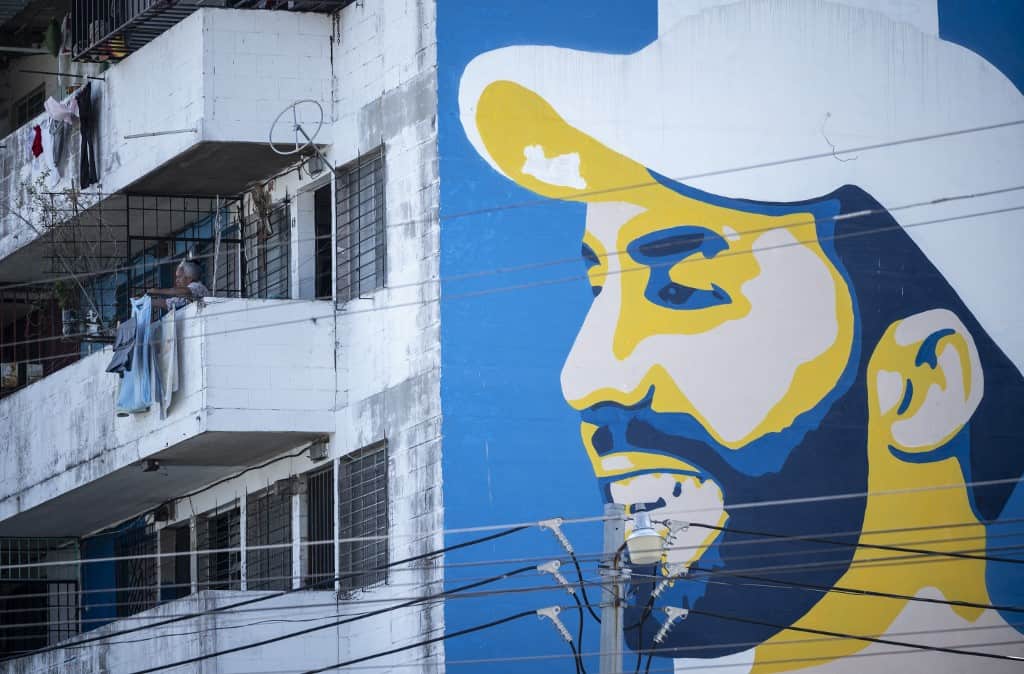The Salvadoran president Nayib Bukele is not worried about being labeled authoritarian or a human rights violator. At the peak of popularity, he describes himself as the “cool dictator” who transformed and rescued a country terrorized by gangs.
With the support of 90% of Salvadorans, this 42-year-old millennial publicist, the most popular president in Latin America according to the 2023 Latinobarómetro, has his reelection almost assured in Sunday’s elections.
“El Salvador went from being the most dangerous country in the world to being the safest in Latin America,” says the president, who claims that gangs killed at least 120,000 people since the end of the civil war in 1992.
At his request, Congress instituted an emergency regime in March 2022 under which more than 75,000 alleged gang members were detained. The homicide rate plummeted. But some 7,000 innocents have been released. Human rights organizations denounce arbitrary arrests, torture or deaths in prison. In response, he accuses them of defending gang members.
Despite the accusations and controversy, his fame has crossed borders and in other countries on the continent voices are popping up asking for “a Bukele” to stop crime. Accompanied by military and police, he went to Congress in February 2020, dominated by the opposition, to pressure for a loan for his security policy.
The following year he obtained an overwhelming parliamentary majority, which allowed him to dismiss the prosecutor and magistrates of the Constitutional Chamber who later enabled his candidacy for reelection, prohibited by the Constitution.
The Bukele cult
With gelled hair and a carefully trimmed beard, he usually wears tight sweaters. Never a tie. Nor does he make grandiloquent speeches, but he takes care of the scene for stylized postal images.
In pressing circumstances Bukele has reacted forcefully: when gangs spread the rumor that they were going to kill people at random in response to the crackdown, he threatened to leave imprisoned gangsters without food. He popularized the phrase “money is enough when no one steals”, but his detractors criticize him for not being accountable to anyone.
Even before being president, he catapulted his image through social networks, on which he usually writes in English. He makes major announcements via Twitter, on which he self-describes as “Philosopher king” and mocks his critics.
“A cult phenomenon that was installed in the country,” thanks to his media machinery on social networks, summarizes Óscar Picardo, Director of Research at the Francisco Gavidia University.
However, he has not managed to get Salvadorans to massively use bitcoin, which Bukele introduced as legal tender in 2021 on par with the dollar.
Class Terrorist
He was born on July 24, 1981 in San Salvador. He is the son of industrial chemist and representative of the Palestinian community Armando Bukele (died in 2015) and Olga Ortez.
As a child “he was always seen smiling, he was never seen desperate,” said architect Marleny Carranza, who worked in the Bukele’s companies. “He was a regular student,” said Óscar Picardo, who was his high school teacher. Since then, he was already showing his sarcastic style. In the school yearbook he described himself: “Class terrorist”.
He studied law at the Central American University, but did not graduate, and chose to work from the age of 18 in an advertising agency of his father that made campaigns for the leftist Farabundo Martí National Liberation Front (FMLN, former guerrilla).
During those years, he was also the manager of a discotheque in San Salvador. He began his political career in 2012 and under the FMLN banner he was mayor of the town of Nuevo Cuscatlán and the Salvadoran capital from 2015 to 2018.
After an incident with a councilwoman, he was expelled from the FMLN in 2017. “I don’t consider myself neither right nor left,” he says now. He climbed to the pinnacle of power in 2019 by connecting with young people and those disappointed by the two parties that had alternated in government after the civil war (1980-1992).
Little tolerant of criticism, he has a small circle of trust where his brothers Karim, Yusef and Ibrajim are. In his government he included former schoolmates from the bilingual school where he studied.
He married psychologist and ballet dancer Gabriela Rodríguez in 2014, with whom he has two daughters, Layla and Aminah.

